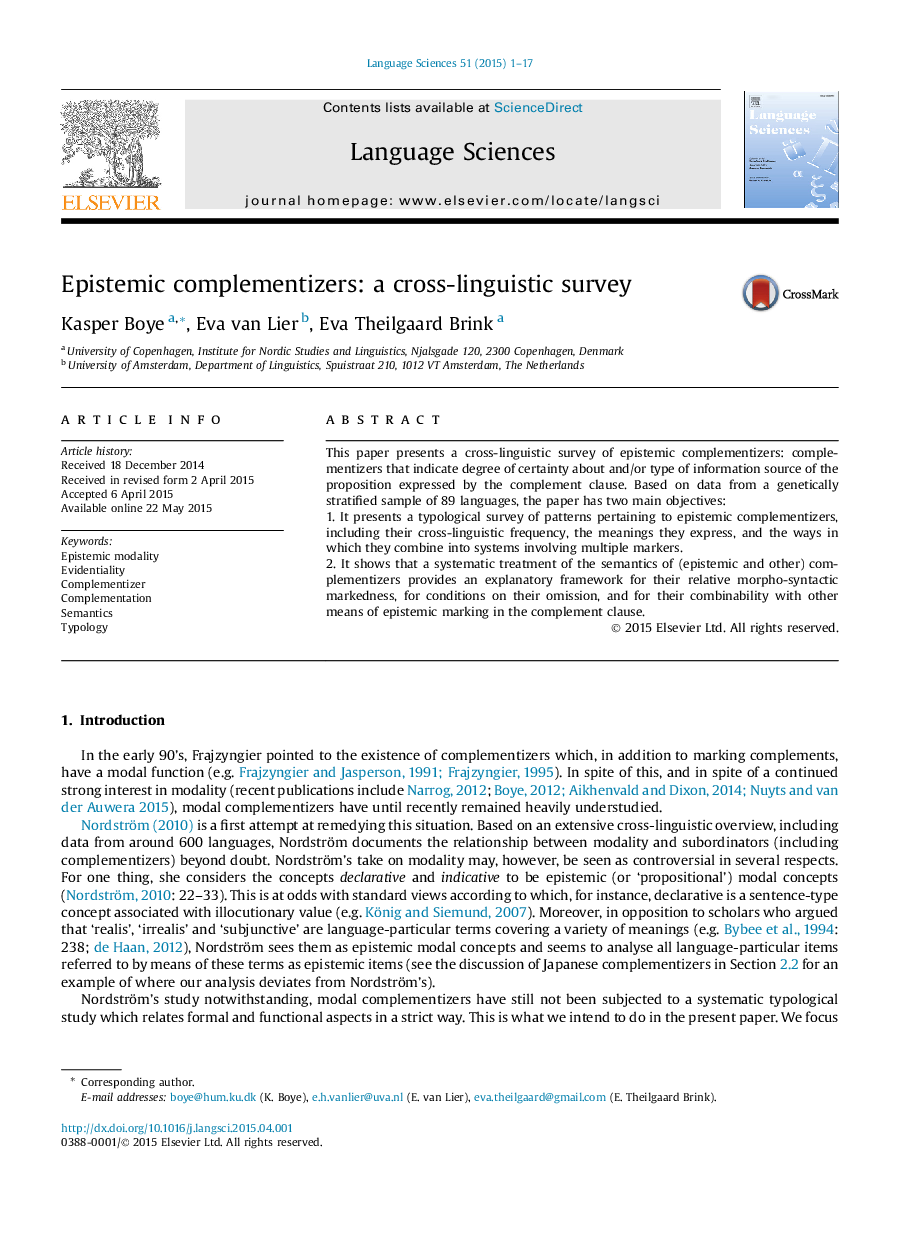| Article ID | Journal | Published Year | Pages | File Type |
|---|---|---|---|---|
| 1103043 | Language Sciences | 2015 | 17 Pages |
•We present a typological survey of epistemic complementizers in 89 languages.•Complementizers are a common way of expressing epistemic meaning.•Epistemic meaning contrasts may be binary or more complex.•Complementizer semantics explains formal patterns of complexity and distribution.•We refute a long-standing claim that all complementizers are modal expressions.
This paper presents a cross-linguistic survey of epistemic complementizers: complementizers that indicate degree of certainty about and/or type of information source of the proposition expressed by the complement clause. Based on data from a genetically stratified sample of 89 languages, the paper has two main objectives:1. It presents a typological survey of patterns pertaining to epistemic complementizers, including their cross-linguistic frequency, the meanings they express, and the ways in which they combine into systems involving multiple markers.2. It shows that a systematic treatment of the semantics of (epistemic and other) complementizers provides an explanatory framework for their relative morpho-syntactic markedness, for conditions on their omission, and for their combinability with other means of epistemic marking in the complement clause.
